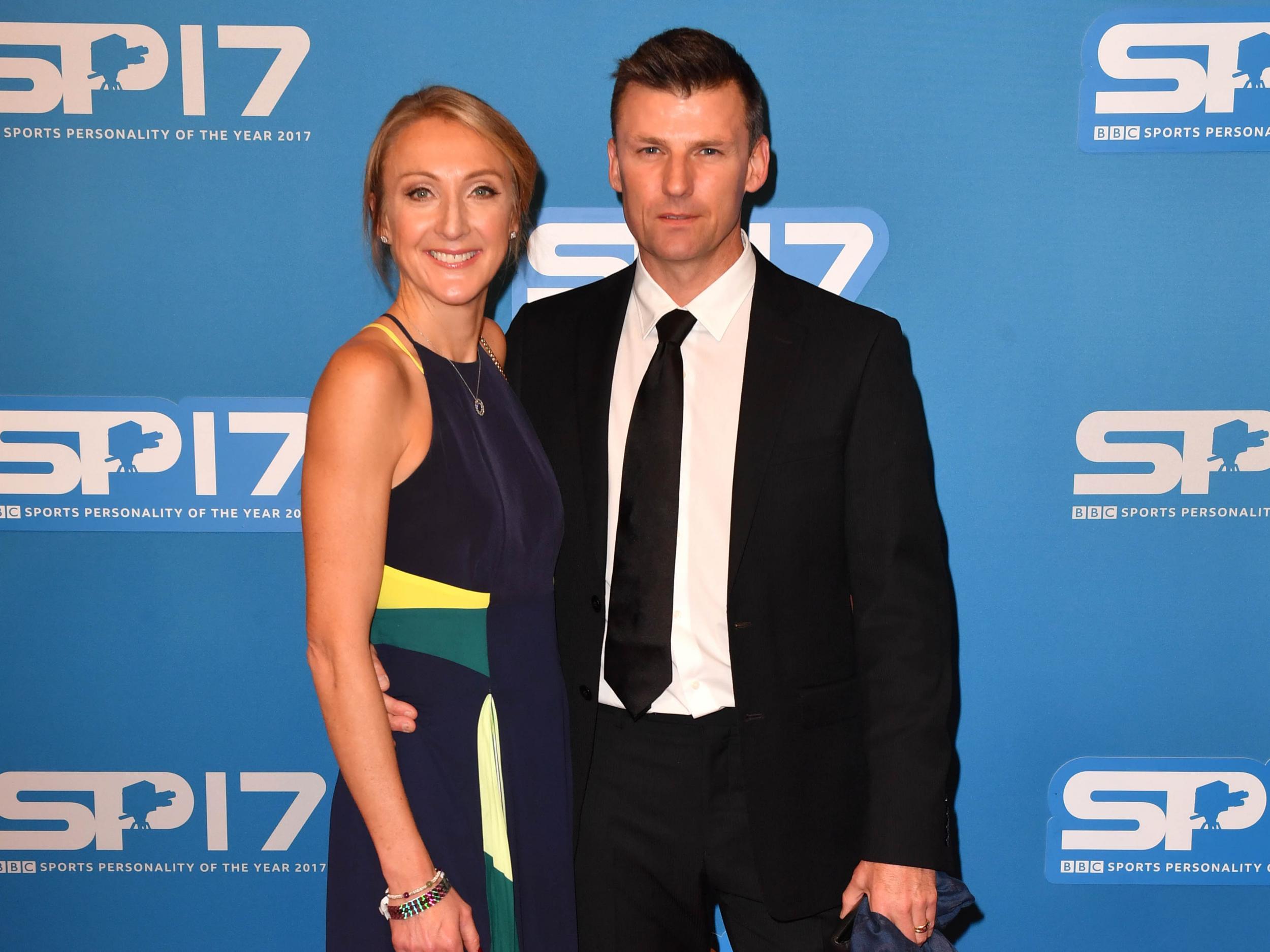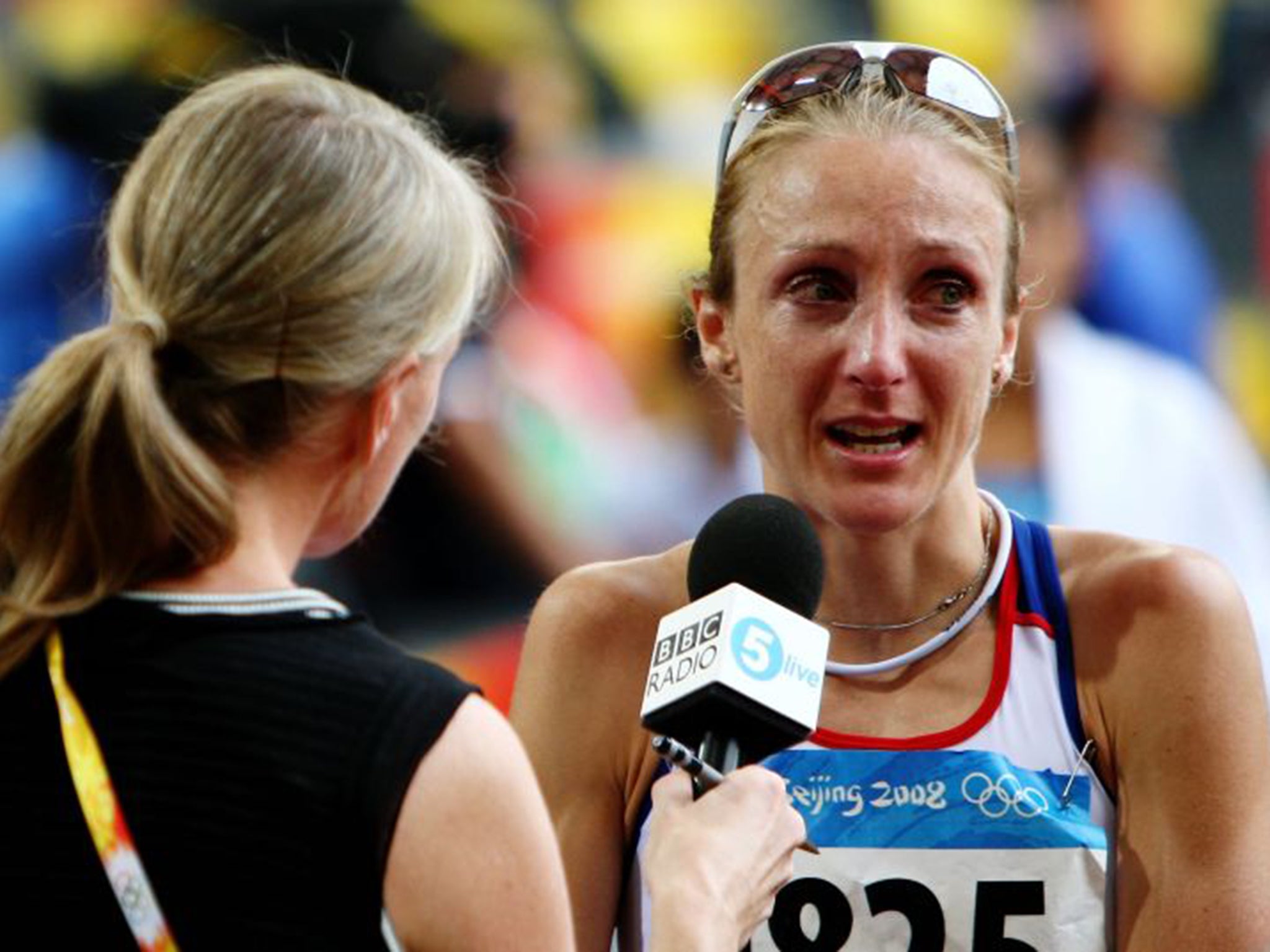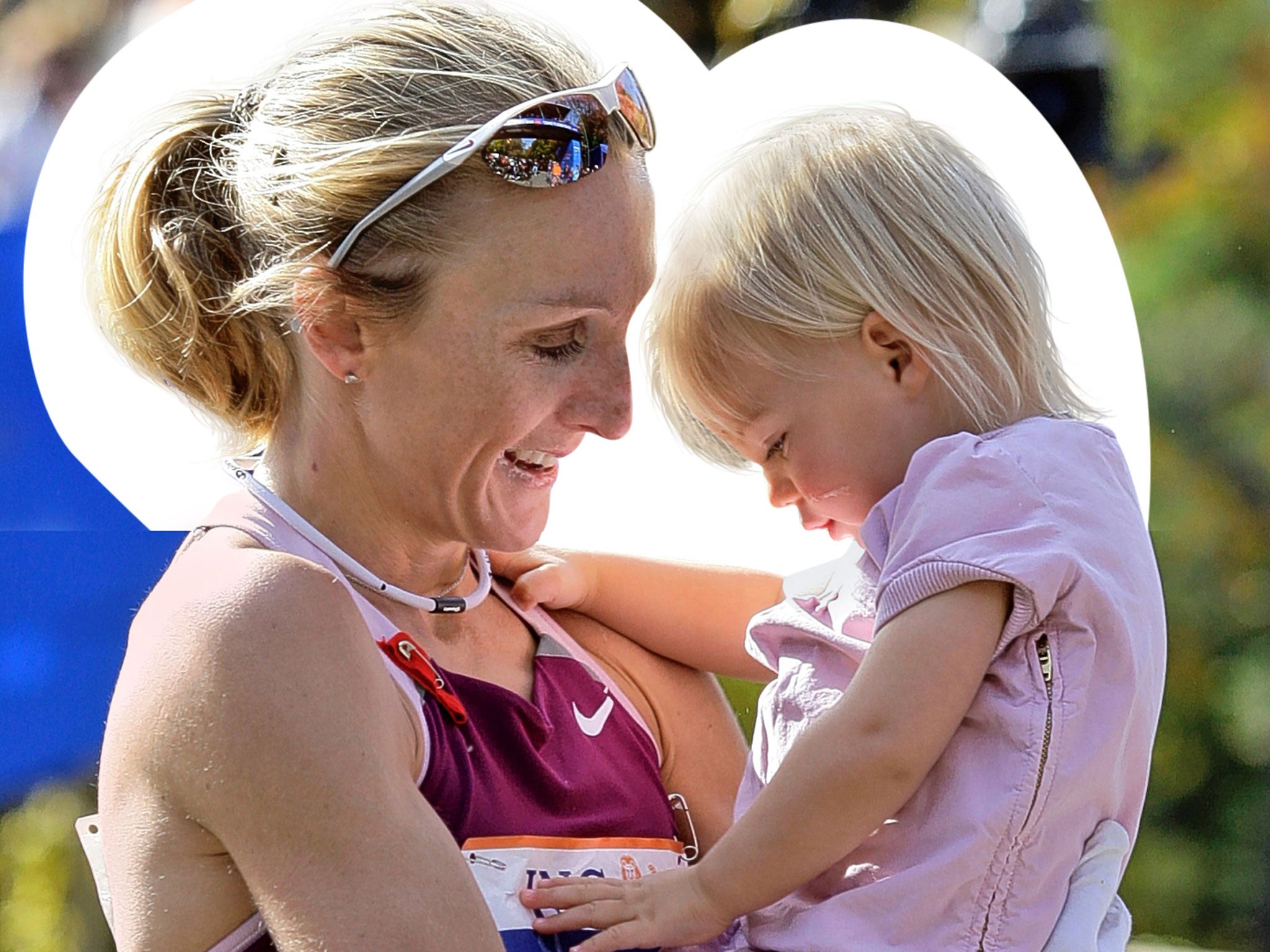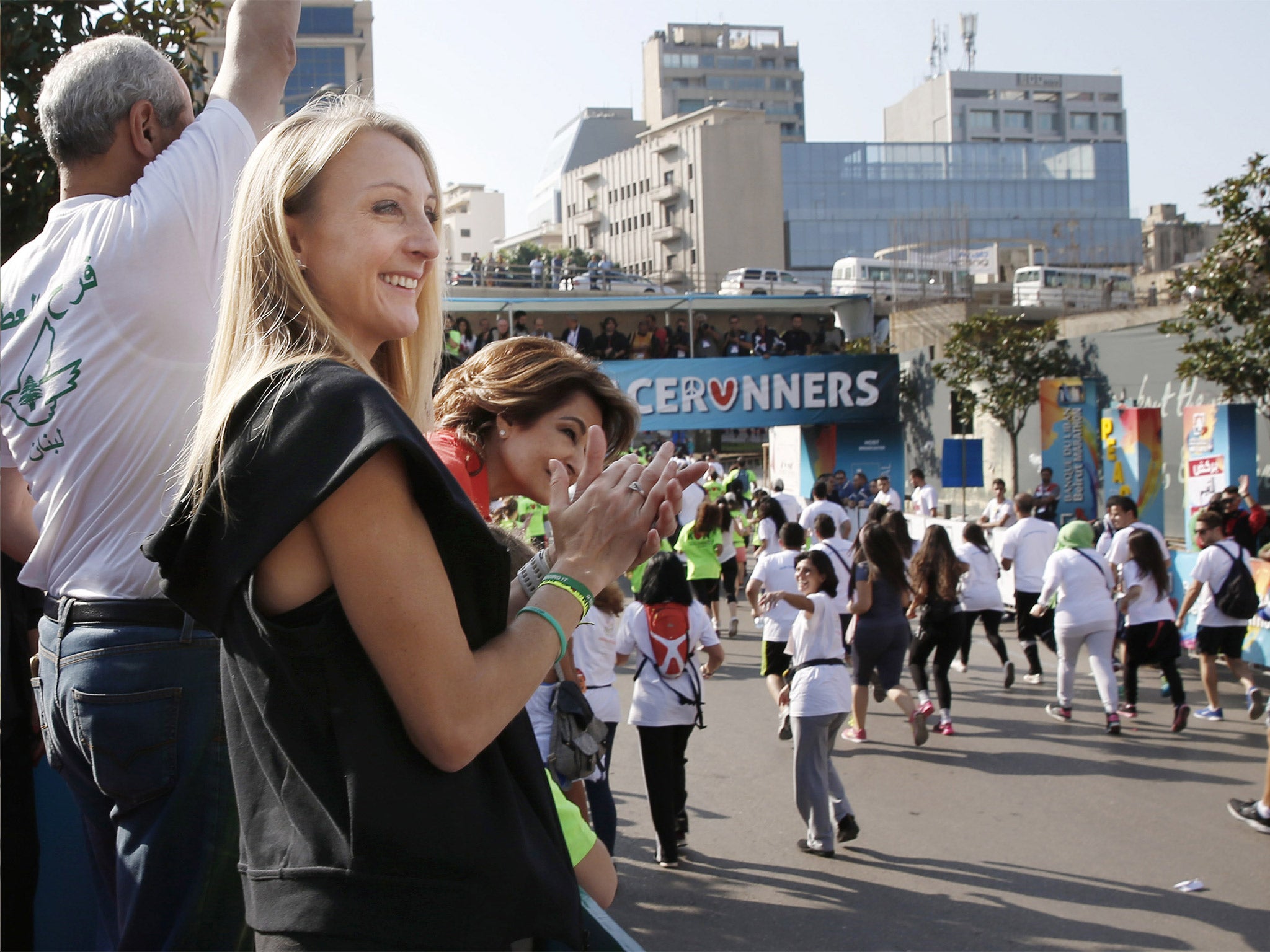Life is a marathon, not a sprint
As one of Britain’s greatest female athletes, Paula Radcliffe spent years at the peak of perhaps the loneliest of all athletic disciplines. The transition back into ‘normal’ life has thrown up its fair share of challenges too, yet she's happier than ever


I started running when I was just nine and my last competitive race was when I was a 41-year-old mother of two in April 2015. Without wishing to fall into sporting cliche, it was quite a journey. To be honest, had I not suffered years of pain and frustration from a chronic foot injury, I may have kept on going too. I never once found it a hardship or a sacrifice to live the life of a long-distance athlete.
I loved being in training camps; I enjoyed feeling my body work hard towards my goals and that burn of pushing myself to reach for my dreams, and I really loved the intensity of race day. That was when you got to see just how good you could be and felt every muscle in your body working in harmony. The thrill and adrenaline of racing, and being cheered on the track or the road at some of the greatest sporting events on earth, is something that will remain with me for the rest of my life. Thankfully, of course, the simple act of running and running free is something I can still enjoy on a daily basis.
And yet, although I’m retired from racing, I can honestly say I am happier now than ever.
In fact, from the moment I hung up my racing flats, it did not feel like the end, but rather the start of the next stage of my life. I was lucky that throughout my early career (I ran at my first world cross country championships when I was 16) my parents and my coach, Alec, would always stress that sport was not like any other career and so I should always have a plan for what I would do after my pro running days were over. I never lost sight of that.
Athletics was (and still is I’m afraid) a precarious way to earn a living. I never earned a salary like a footballer at a club and got paid very little, if anything, when sick or injured – and for most athletes, those times will come around sooner or later.
This slightly irregular way of life, even though I was luckier than some, made me even more acutely aware of the need to have a plan for what I would do when I wasn’t able to race anymore.

Thinking ahead didn’t just help me with the financial practicalities of retiring from my sport. I always knew that my competitive athlete life was not going to last forever, so when I eventually retired it didn’t feel like an abrupt shock, or that I was losing my identity and sense of status.
Rather I was able to appreciate that I had had a long and fortunate run and had been able to accomplish the vast majority of the goals I had when starting out, and more. I know a lot of retiring sportspeople can hit something of a brick wall, having either not expected the end to come when it did, or not worked out what comes next. It can be hugely difficult.
I think the fact that I already had a young family, and that I had suffered from a really debilitating foot injury for the past few years of my career also gave me a sense of perspective. I always knew that the decision of when I stopped may not be mine to make, and that it was highly likely that it would be forced upon me by injury.
I always knew that my competitive athlete life was not going to last forever, so when I eventually retired it didn’t feel like an abrupt shock, or that I was losing my identity and sense of status
But in any case, for me, retirement was always about a chance to try something new. What helped a lot was that I never expected to go straight into a dream job. That might sound an odd thing to say given that I had already had one, but I made it a point of principle to have in my head the idea that I was 23 years old and just starting out on a career – even though in fact I was 40.
By keeping my feet on the ground and being open-minded, humble and ready to learn quickly, I have been able to build a portfolio of work that is both fun and stimulating to do; and pays the bills.
As a retiring athlete, I realised that you need to be patient and not rush things. Just like when I was a professional runner, I found the key was to try and get the basics right. And while it might sound like the kind of thing you’d say to someone fresh out of college, I’ve found it’s important to take time to think properly about what your interests are and then develop the qualifications you need.

I think it is also fine not to feel totally in control, or 100 per cent sure about what the next steps will be. When I was younger, I had no clue exactly what I wanted to do. There was no specific dream role that I knew I wanted to aim for after my running career ended, so I am glad that I have been able to put together a mish-mash of activities – a bundle – which fits around my lifestyle and my family’s needs. It’s very different in some ways from the single focus you get used to as an athlete; but it’s refreshing
I have been fortunate to work both for the BBC and for Nike, and both those roles have evolved slowly over time, beginning when I was still in the final stage of my racing career and when I knew I had to think about what was next for me.
At Nike I was able to develop my ability as a motivational speaker: it was incredibly challenging at first but I relished the adrenaline and the nerves, which of course are always such a key element in professional sport. The more I did, the more confidence I gained. I’ve also been able to continue to act as a running ambassador where I get to share my love of running with many like-minded people.
My work for the BBC also progressed gradually. I was first approached by them in 2010 when I was pregnant and had some time away from the roads. Steve Cram, who was heading the athletics commentary team, asked if I would be interested in trying out as the BBC were keen on a female voice and someone with insight into distance running to commentate from the major events. I did my first commentary job at the European Championships in Barcelona and although I made some rookie mistakes, I loved the experience and was very happy to become part of the team.
There’s no doubt that one of the hardest things to give up when you are a professional sportsperson is the adrenaline rush and buzz that comes from competition. Many struggle to replicate it. Where I am really privileged is that I have been able to find work that is just as exciting.
In fact, I sometimes get more nervous before a big speaking engagement or a major commentary job than I did before a big race. In the end, sportspeople are driven by a desire to achieve their goals and to perform at their best. It might be easier said than done, but it’s crucial once competing comes to an end to find an occupation that allows you the same satisfaction, regardless of the subject matter.
Having a family was something that both I and my husband Gary always wanted. Since the day Isla was born in 2007, I have always made sure that the family could be involved in my life
I have to say though, one thing I didn’t miss when I retired was the “roar of the crowd”. That’s not the case for all sportspeople but I was never in athletics to be famous; I certainly didn’t revel in the idea of being well-known, as some do. Moving out of the glare of being a public figure was not hard at all. What is harder is to find equivalent ways to set and achieve ambitious goals and to satisfy my competitive side.
Another thing it was difficult for me to adjust to is the Monday to Friday, “nine to five” routine of office life. When you are a professional sportsperson you are basically always on, working odd and unusual hours, but you always got the job done first rather than clock on and off when someone else told you to. I recently started working with the Athletics Integrity Unit and I find I am most effective when I can do that with a flexi-time system rather than checking in and out at fixed times.
The Integrity Unit has been great for me as it not only allows me to fight for clean athletics, which is something very close to my heart and which became a big goal of mine whilst I was competing, but it also allows me to spend more time at home. When I retired I promised the kids that I would stop travelling as much and getting this job is perfect as I get to sleep in my own bed more often.
Having a family was something that both I and my husband Gary always wanted. Since the day Isla was born in 2007, I have always made sure that the family could be involved in my life. When the kids were very young it was easy, as we just took them with us – to training camps and races. Now that they’re in school we just make sure we tag-team when it comes to travelling.

Gary now advises Mo Farah and sometimes needs to be away, as do I, but we make sure that the kids have at least one of us at home with them. We’re also blessed to have supportive parents who are ready to fly to the rescue when needed.
We are a very happy family. Throughout my career I knew that I ran well when I was happy, so the two things have fitted together nicely, rather than in any way conflicting. I’m no different to other mothers in that my children give me a great sense of perspective.
When you get setbacks and things don’t go as well as you planned, kids don’t really care and have a knack of getting you to see clearly what is really important. That has been another factor in making my retirement from racing easier – and helping me take steps into other areas of work.
People often think I did nothing but run during my teenage years, but in fact I studied French and German at Loughborough University and knew that I wanted languages to be a part of my life. When I was breaking world records and winning big races – even while I was training hard, setting goals and having a successful career as a runner – I was always wondering how I could keep my language skills honed.
Funnily enough, the International Association of Athletics Federations (IAAF) needed French translations for one of their publications and that was a great way to keep my brain active at a time when most of my focus was on physical activity.
I also spent a lot of time in France at an altitude training centre and when I decided to move to Monaco in 2004, it meant that I was able to function well in a multi-lingual environment. It makes me sad that so few schoolchildren pursue foreign languages nowadays. I feel like we should do more as a country to encourage it. Good communication – including in other languages – is so vital to personal confidence.
When you get setbacks and things don’t go as well as you planned, kids don’t really care and have a knack of getting you to see clearly what is really important
I was unusual in that I started a family while I was still competing. I had Isla in 2007 and Raphael in 2011. Most athletes wait until they retire to have kids but I managed to get the timing right so that the births took place between major championships.
I ran and won the 2007 New York Marathon 10 months after giving birth to my daughter, which showed that pregnancy and motherhood need not have a negative impact on competitive sport and can rather compliment it.
Since having children of my own I’ve become increasingly passionate about getting other families engaged in sport in a fun and child-friendly way. Not only does this ensure more people are active and getting fit, but it also gives families who lead modern, busy lives the chance to bond as a unit. The opportunity to have fun together and spend quality time doing something that benefits their heath is so important.
When I stop to reflect on it, I know I had an amazing career, breaking the women’s world record in the marathon; winning the London and New York Marathons three times as well as Chicago and New York; becoming a world champion at the World Championships in Helsinki in 2005 and qualifying to represent Britain at five consecutive Olympics.

My motto has always been “no limits”. I never tried to run with a set time in mind, because what would happen if I was ahead of my splits? I wasn’t going to slow down. I preferred simply to try each time to go quicker that I had before; now I want to keep that same attitude alive even though I am not racing anymore, by giving whatever I do my very best shot and seeing what I can achieve.
My desire to influence others to benefit from sport and exercise is at the forefront of my mind at the moment. I’ve put together a team to develop a project which I am planning to launch in 2019 and which I hope will gain support, initially in the UK, but then globally.
By getting more families active together, I want to highlight the many health benefits of exercise and help people have fun running. I genuinely believe that there is nothing quite like sport for uniting people, for building self-confidence and awareness and for helping develop decision-making skills.
I know too that it can have a hugely positive impact on mental health as well as physical, which is something we seem much more ready to recognise as a society nowadays.
Whatever happens, I’ll always be a runner; and I’m excited about what is around the next corner as the road unfolds.
Paula Radcliffe MBE has been the women’s world record holder for the marathon since 2003, when she ran 2:15:25 in London. She will launch her Families on Track initiative in 2019
Join our commenting forum
Join thought-provoking conversations, follow other Independent readers and see their replies
Comments
Bookmark popover
Removed from bookmarks